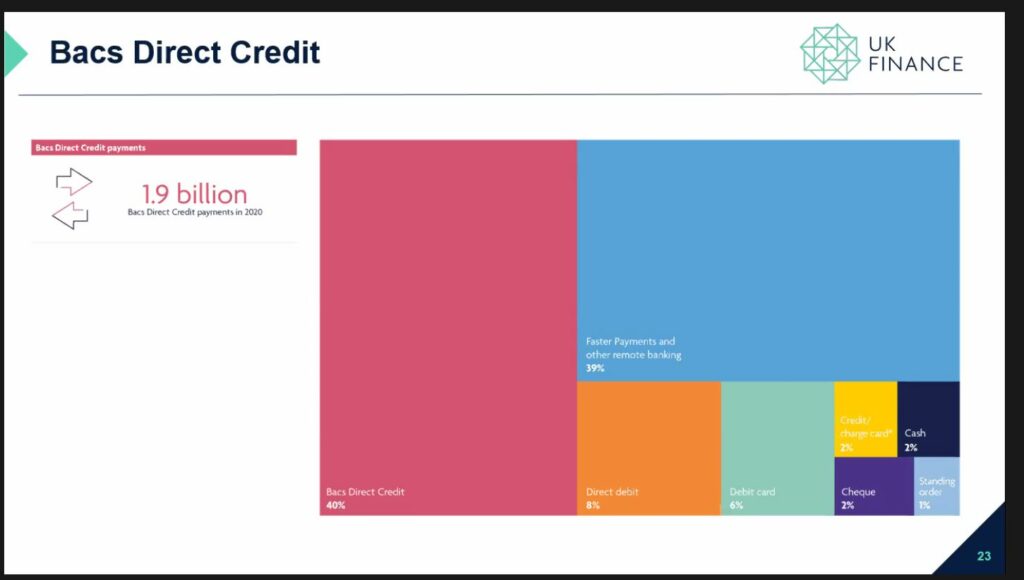These last 18 months have been anything but ordinary.
A global pandemic, months of lockdown, enduring uncertainty and new technology has all played a part in the shifting behaviors of the UK payments sector.
According to new research by UK Finance, the total number of payments (business and consumer) in the UK declined for the first time in six years as a result of the pandemic; it fell by 11% to £35.6bn.
This is due to a drop in consumer transactions during lockdown and an associated decline of cash usage. In fact, five in six payments involved no notes or coins, compared with half of all transactions a decade ago.

Changing behaviour ?
The fascinating UK Payment Markets Report 2020 also highlighted a change in the type of payments people now prefer, with significant growth in contactless, mobile and internet banking.
With the nation working from home, more people than ever adopted remote banking – 72% of UK adults used online banking and 54% used mobile banking, as a convenient way to manage their finances during lockdown.
This has a significant knock-on effect for the B2B market as the digitalization of payments is a trend set to expedite.
The reduction in face-to-face trading during 2020 also had an impact on business behaviour, discouraging in-person payment methods such as cash and cheques in favour of remote payments such as Bacs Direct Credit or Faster Payments.
There was a notable increase in business use here as 54% of all B2B payments were made via Faster Payments, or other remote banking methods.

Tom Livock, head of enterprise sales at AccessPay explains: “There is a continuing trend to move to real time bank-to-bank payments which will mean a further decline of cheques and Bacs Direct Credits for corporates.
“The age of having to wait for a payment – whether it’s because of the three day Bacs cycle or the two day clearing cycle for cheques – is now almost over. And whether its accounts receivable or account payable corporates can look forward to real-time benefits.”
This is a real benefit to businesses as it means improved cashflow for credits e.g. ‘we have received that credit on time as expected’.
It also ensures payments are made in real-time for debits on their accounts ‘we no longer have to plan payroll three days in advance which was a real challenge for our weekly payroll cycle’.

The value of B2B ?
Despite the Covid-19 pandemic and national lockdowns, the number of business payments didn’t fall in 2020, as some might initially have expected.
Instead they accounted for 14% of all transactions made in the UK and, due to their high average value, made up 80% of the total value.
Despite the ongoing rise of Faster Payments, Bacs Direct Credit remained the most frequently-used payment method amongst businesses in 2020.
Although the proportion of business payments made by Bacs Direct Credit has fallen in recent years, from 62% of business payments in 2010 to 40% of business payments in 2020.
This may also reflect a growing trend for instant payments brought on by consumer usage.
David Postings, Chief Executive of UK Finance said: “The pandemic resulted in some marked changes in payments behaviour and while it’s too early to say whether they are permanent changes, we did see an acceleration in some existing trends such as the reduction in cash usage and the growth in contactless and mobile payments.”
The long view ?
The most important trends in business payments over the past decade:
- Strong growth in use of Faster Payments
- Continued decline in use of cheques
- Gradually increasing use of debit cards (despite a slight stall in 2020)
- Slight decline in number of payments made by Bacs Direct Credit
